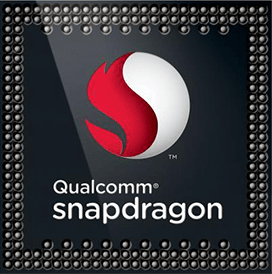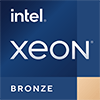
Qualcomm Snapdragon 780G Benchmark, Test and specs
Last updated:
The Qualcomm Snapdragon 780G has 8 CPU cores and can process 8 threads at the same time. The processor was presented in Q2/2021 and is based on the 4. Generation of the Qualcomm Snapdragon series. In the Geekbench 5 benchmark, the Qualcomm Snapdragon 780G achieved a result of 823 points (single-core) or 3,027 points (multi-core).

| Name: | Qualcomm Snapdragon 780G |
|---|---|
| Family: | Qualcomm Snapdragon (102) |
| CPU group: | Qualcomm Snapdragon 780 (2) |
| Architecture: | Kryo 670 |
| Segment: | Mobile |
| Generation: | 4 |
| Predecessor: | -- |
| Successor: | Qualcomm Snapdragon 782G |
CPU Cores and Base Frequency
The Qualcomm Snapdragon 780G has 8 cores. The clock frequency of the Qualcomm Snapdragon 780G is 2.40 GHz. An initial performance assessment can be made using the number of CPU cores.
| CPU Cores / Threads: | 8 / 8 |
|---|---|
| Core architecture: | hybrid (Prime / big.LITTLE) |
| A-Core: | 1x Kryo 670 Prime |
| B-Core: | 3x Kryo 670 Gold |
| C-Core: | 4x Kryo 670 Silver |
| Hyperthreading / SMT: | No |
|---|---|
| Overclocking: | No |
| A-Core Frequency: | 2.40 GHz |
| B-Core Frequency: | 2.20 GHz |
| C-Core Frequency: | 1.90 GHz |
Internal Graphics
The Qualcomm Snapdragon 780G has an integrated graphics that the system can use to efficiently play back videos. The Qualcomm Snapdragon 780G has the Qualcomm Adreno 642 installed, which has 4 streaming multiprocessors (384 shaders).
| GPU name: | Qualcomm Adreno 642 |
|---|---|
| GPU frequency: | |
| GPU (Turbo): | No turbo |
| Compute units: | 4 |
| Shader: | 384 |
| Hardware Raytracing: | No |
| Release date: | Q2/2021 |
| Max. displays: | 1 |
|---|---|
| Generation: | 5 |
| Direct X: | 12.0 |
| Technology: | 5 nm |
| Max. GPU Memory: | 4 GB |
| Frame Generation: | No |
Hardware codec support
Processors with integrated graphics can process video codecs faster. Support for modern codecs can significantly increase system efficiency during video playback.
| h265 / HEVC (8 bit): | Decode / Encode |
|---|---|
| h265 / HEVC (10 bit): | Decode / Encode |
| h264: | Decode / Encode |
| VP8: | Decode / Encode |
| VP9: | Decode / Encode |
| AV1: | No |
|---|---|
| AVC: | Decode |
| VC-1: | Decode |
| JPEG: | Decode / Encode |
Memory & PCIeThe Qualcomm Snapdragon 780G supports a maximum of 16 GB memory. Depending on the mainboard, the processor can use a maximum of 2 (Dual Channel) memory channels. This results in a maximum bandwidth of the main memory of 34.1 GB/s. |
|
| Memory type: | Memory bandwidth: |
|---|---|
| LPDDR4X-4266 | 34.1 GB/s |
| Max. Memory: | 16 GB |
| Memory channels: | 2 (Dual Channel) |
| ECC: | No |
| PCIe: | |
| PCIe Bandwidth: | -- |
Thermal ManagementThe Qualcomm Snapdragon 780G has a TDP of 5 W. Based on the TDP, the system manufacturer can and must adapt the cooling solution to the processor. |
|
|---|---|
| TDP (PL1 / PBP): | 5 W |
| TDP (PL2): | -- |
| TDP up: | -- |
| TDP down: | -- |
| Tjunction max.: | -- |
Technical details
Modern production reduces the waste heat of a processor and increases its efficiency. The Qualcomm Snapdragon 780G is made in 5 nm and has 2.00 MB cache.
| Technology: | 5 nm |
|---|---|
| Chip design: | Chiplet |
| Socket: | -- |
| L2-Cache: | -- |
| L3-Cache: | 2.00 MB |
| AES-NI: | No |
| Operating systems: | Android |
| Virtualization: | None |
|---|---|
| Instruction set (ISA): | Armv8-A (64 bit) |
| ISA extensions: | -- |
| Release date: | Q2/2021 |
| Release price: | -- |
| Part Number: | SM7350 |
| Documents: | Technical data sheet |
Rate this processor
Benchmark results

The benchmark results for the Qualcomm Snapdragon 780G have been carefully checked by us. We only publish benchmark results that have been created by us or that have been submitted by a visitor and then checked by a team member. All results are based on and fullfill our benchmark guidelines.
Geekbench 5, 64bit (Single-Core)
Geekbench 5 is a cross plattform benchmark that heavily uses the systems memory. A fast memory will push the result a lot. The single-core test only uses one CPU core, the amount of cores or hyperthreading ability doesn't count.

|
Intel Core i3-6300T
2C 4T @ 3.30 GHz |
||

|
Intel Core i5-8200Y
2C 4T @ 3.90 GHz |
||

|
Intel Core i5-8310Y
2C 4T @ 3.90 GHz |
||
|
|
Qualcomm Snapdragon 780G
8C 8T @ 2.40 GHz |
||

|
Intel Core i5-4690T
4C 4T @ 3.50 GHz |
||

|
AMD Ryzen 5 3450U
4C 8T @ 3.50 GHz |
||

|
Intel Xeon D-1713NTE
4C 8T @ 3.30 GHz |
||
Geekbench 5, 64bit (Multi-Core)
Geekbench 5 is a cross plattform benchmark that heavily uses the systems memory. A fast memory will push the result a lot. The multi-core test involves all CPU cores and taks a big advantage of hyperthreading.

|
Intel Xeon Bronze 3204
6C 6T @ 1.90 GHz |
||

|
AMD FX-9370
8C 8T @ 4.70 GHz |
||

|
Intel Core i7-4810MQ
4C 8T @ 3.70 GHz |
||
|
|
Qualcomm Snapdragon 780G
8C 8T @ 2.40 GHz |
||

|
Intel Xeon W-2102
4C 4T @ 2.90 GHz |
||

|
Intel Core i5-4690S
4C 4T @ 3.50 GHz |
||

|
AMD FX-9590
8C 8T @ 5.00 GHz |
||
Geekbench 6 (Single-Core)
Geekbench 6 is a benchmark for modern computers, notebooks and smartphones. What is new is an optimized utilization of newer CPU architectures, e.g. based on the big.LITTLE concept and combining CPU cores of different sizes. The single-core benchmark only evaluates the performance of the fastest CPU core, the number of CPU cores in a processor is irrelevant here.

|
Intel Xeon Silver 4116
12C 24T @ 3.00 GHz |
||

|
Intel Core m3-8100Y
2C 4T @ 3.40 GHz |
||

|
Intel Xeon D-2123IT
4C 8T @ 3.00 GHz |
||
|
|
Qualcomm Snapdragon 780G
8C 8T @ 2.40 GHz |
||

|
Qualcomm Snapdragon 778G
8C 8T @ 2.40 GHz |
||

|
Intel Core i7-7Y75
2C 4T @ 3.30 GHz |
||

|
Intel Xeon E5-2697A v4
16C 32T @ 3.60 GHz |
||
Geekbench 6 (Multi-Core)
Geekbench 6 is a benchmark for modern computers, notebooks and smartphones. What is new is an optimized utilization of newer CPU architectures, e.g. based on the big.LITTLE concept and combining CPU cores of different sizes. The multi-core benchmark evaluates the performance of all of the processor's CPU cores. Virtual thread improvements such as AMD SMT or Intel's Hyper-Threading have a positive impact on the benchmark result.

|
AMD Ryzen 3 PRO 3300U
4C 4T @ 2.10 GHz |
||

|
Intel Core i3-6300
2C 4T @ 3.80 GHz |
||

|
AMD Ryzen 3 3300U
4C 4T @ 2.10 GHz |
||
|
|
Qualcomm Snapdragon 780G
8C 8T @ 2.40 GHz |
||

|
Intel Core i5-7287U
2C 4T @ 3.70 GHz |
||

|
Intel Core i7-3770K
4C 8T @ 3.90 GHz |
||

|
Intel Core i3-8109U
2C 4T @ 3.20 GHz |
||
iGPU - FP32 Performance (Single-precision GFLOPS)
The theoretical computing performance of the internal graphics unit of the processor with simple accuracy (32 bit) in GFLOPS. GFLOPS indicates how many billion floating point operations the iGPU can perform per second.

|
MediaTek MT6572M
ARM Mali-400 @ 0.40 GHz |
||

|
Samsung Exynos 3110
PowerVR SGX540 @ 0.20 GHz |
||

|
MediaTek MT6575M
PowerVR SGX531 @ 0.28 GHz |
||
|
|
Qualcomm Snapdragon 780G
Qualcomm Adreno 642 @ 0.00 GHz |
||

|
MediaTek Dimensity 9200+
ARM Immortalis-G715 MP11 @ 0.98 GHz |
||

|
Google Tensor G3
ARM Immortalis-G715 MP10 @ 0.89 GHz |
||

|
MediaTek Dimensity 9200
ARM Immortalis-G715 MP11 @ 0.98 GHz |
||
AnTuTu 8 Benchmark
The AnTuTu 8 Benchmark measures the performance of a SoC. AnTuTu benchmarks the CPU, GPU, Memory as well as the UX (User Experience) by simulating browser and app usage. AnTuTu can benchmark any ARM CPU that runs under Android or iOS. Devices may not be directly compareable if the benchmark has been performed under different operating systems.
In the AnTuTu 8 benchmark, the single-core performance of a processor is only slightly weighted. The evaluation consists of the multi-core performance of the processor, the speed of the RAM and the performance of the internal graphics.
In the AnTuTu 8 benchmark, the single-core performance of a processor is only slightly weighted. The evaluation consists of the multi-core performance of the processor, the speed of the RAM and the performance of the internal graphics.

|
Apple A13 Bionic
6C 6T @ 2.65 GHz |
||

|
Qualcomm Snapdragon 778G
8C 8T @ 2.40 GHz |
||

|
Samsung Exynos 990
8C 8T @ 2.73 GHz |
||
|
|
Qualcomm Snapdragon 780G
8C 8T @ 2.40 GHz |
||

|
MediaTek Dimensity 1000
8C 8T @ 2.60 GHz |
||

|
MediaTek Dimensity 1000+
8C 8T @ 2.60 GHz |
||

|
Qualcomm Snapdragon 855 Plus
8C 8T @ 2.96 GHz |
||
Estimated results for PassMark CPU Mark
Some of the CPUs listed below have been benchmarked by CPU-monkey. However the majority of CPUs have not been tested and the results have been estimated by a CPU-monkey’s secret proprietary formula. As such they do not accurately reflect the actual Passmark CPU mark values and are not endorsed by PassMark Software Pty Ltd.

|
MediaTek Dimensity 920
8C 8T @ 2.50 GHz |
||

|
Intel Core i5-4460
4C 4T @ 3.30 GHz |
||

|
Intel Core i3-7320
2C 4T @ 4.10 GHz |
||
|
|
Qualcomm Snapdragon 780G
8C 8T @ 2.40 GHz |
||

|
Intel Xeon Bronze 3204
6C 6T @ 1.90 GHz |
||

|
Apple A12 Bionic
6C 6T @ 2.49 GHz |
||

|
Intel Core i5-7442EQ
4C 4T @ 2.10 GHz |
||
Performance for Artificial Intelligence (AI) and Machine Learning (ML)
Processors with the support of artificial intelligence (AI) and machine learning (ML) can process many calculations, especially audio, image and video processing, much faster than classic processors. The performance is given in the number (trillions) of arithmetic operations per second (TOPS).

|
Qualcomm Snapdragon 865
8C 8T @ 2.84 GHz |
||

|
Qualcomm Snapdragon 865+
8C 8T @ 3.10 GHz |
||

|
Samsung Exynos 990
8C 8T @ 2.73 GHz |
||
|
|
Qualcomm Snapdragon 780G
8C 8T @ 2.40 GHz |
||

|
Qualcomm Snapdragon 778G+
8C 8T @ 2.50 GHz |
||

|
Qualcomm Snapdragon 778G
8C 8T @ 2.40 GHz |
||

|
Apple M1 (7-GPU)
8C 8T @ 0.60 GHz |
||
Benchmarks

Geekbench 5 (SC)
2,488 entries
2,488 entries

Geekbench 5 (MC)
2,461 entries
2,461 entries

Geekbench 6 (SC)
1,755 entries
1,755 entries

Geekbench 6 (MC)
1,703 entries
1,703 entries

FP32 SP (iGPU)
2,042 entries
2,042 entries

AnTuTu 8 Benchmark
118 entries
118 entries

PassMark CPU-Mark
2,392 entries
2,392 entries

AI / ML Performance
119 entries
119 entries
Description of the processor
This Processor is discontinued due to global chip shortage.Popular comparisons
back to index




